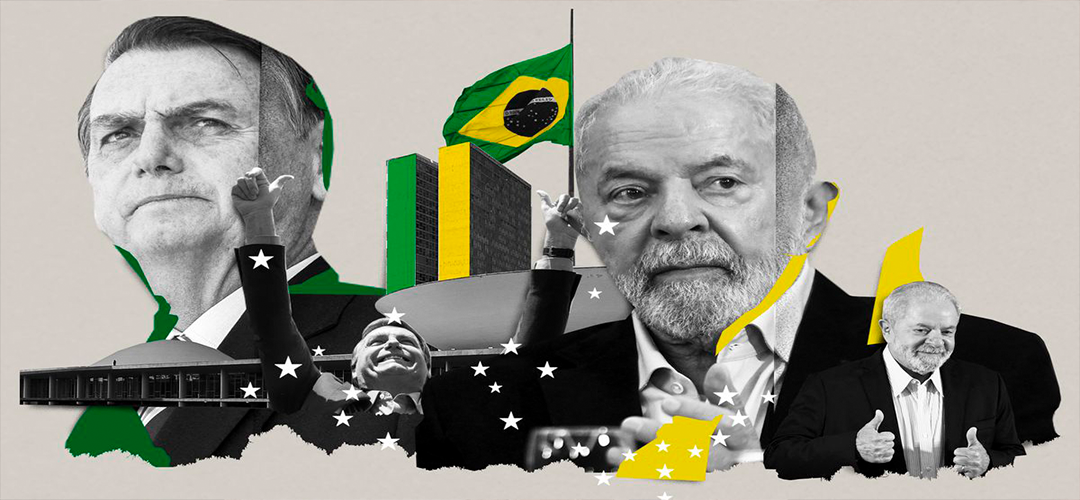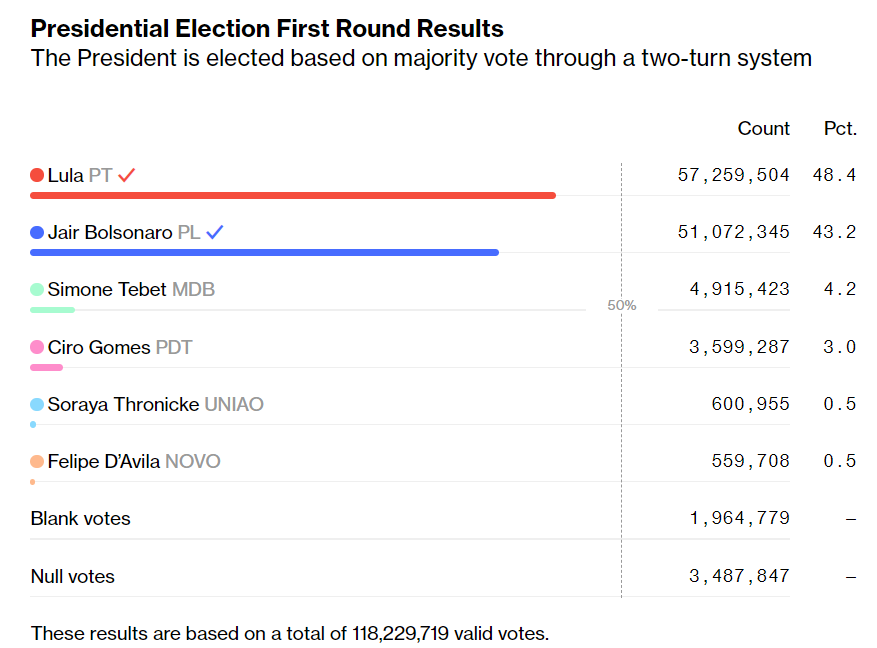GAME OF LESSER EVILS
October 8, 2022 | Expert Insights

Political cynicism amplified by radical polarization and contention is the current trend in many democracies worldwide. With its higher education levels, Latin American nations are perhaps the worst affected. Extreme polarization, glaring political rifts in the executive branch and widespread disinformation continue to rattle democracies throughout Latin America.
The results from Brazil's first round of presidential elections witnessed a surprising outcome. Jair Bolsonaro, the current far-right president, received 43.2 per cent of the vote; narrowly falling short of the front-runner, Luiz Inacio Lula da Silva of the left-wing received 48.43 per cent. Since neither contender obtained more than 50 per cent of the vote, a runoff will be held at the end of this month.
Background
Democracy in the contemporary has to choose between the lesser of two evils. In the 2022 elections, Brazilians are united in what they detest. The race sets two leading political titans ranked among the most distinctive populist leaders in Brazilian politics over the past 20 years.
As a self-described outsider and former career politician, Bolsonaro leveraged a backlash against Lula's Workers Party to triumph in 2018. He successfully united factions of Brazil's rights, including evangelical Christians, farmers, and pro-gun activists. Over the past two years, he has also drawn global criticism for his destructive environmental policies in the Amazon rainforest. His political style is characterized by a scathing attack on political rivals, judges, and writers catering to social conservatives with an anti-gay and anti-abortion stance. During the height of the COVID pandemic, he consistently denied its severity and continued to defy COVID-appropriate behaviour.
Bolsonaro's poor economic performance has aided the resurrection of former socialist president Luis Inácio Lula da Silva. Da Silva, a former metalworker, is credited with establishing a comprehensive social welfare programme during his presidency from 2003 to 2010 that assisted in bringing tens of millions of people into the middle class.
However, he is also noted for his administration's participation in significant corruption scandals involving politicians and corporate executives. Former president Lula was found guilty of corruption in 2017, but this year's top court in Brazil overturned the decision on the grounds that the judge was prejudiced and had worked with the prosecution.
Analysis
The tight outcome on October 2 highlights the country's extreme political divide, especially because Bolsonaro continuously received less support in public polling than he did in the election. As for the congressional elections, Bolsonaro's conservative party outperformed, winning a majority and at least seven more seats. That might encourage Bolsonaro's followers and make it harder for Lula to enact left-wing policies if elected. Lula's chances of winning the second round now appear to be diminishing.
If Bolsonaro succeeds in making a comeback, it will end a wave of victories for leftists in recent years that have spread across the Americas, notably in Argentina, Chile, Colombia, and Mexico. By upholding conservative principles and positioning himself as the country's protector against leftist policies, which, in his view, violate individual liberties and cause economic unrest, Bolsonaro has gained a loyal following.
Bolsonaro is dangerously intertwined with the military, which has remained strongly conservative and undergone no major reform since the end of the dictatorship. Senior generals currently serve as his running mate and vice president. Watchdog organizations claim that during Bolsonaro's administration, military personnel working in government positions doubled.
Lula promised to improve the country's working and poor classes, just as he did while president from 2003 to 2010.
In global politics, Bolsonaro and Lula deviate significantly. Bolsonaro has adopted anti-globalist rhetoric and accused international organizations of endangering Brazil's sovereignty, breaking with most of his predecessors. Additionally, his administration has worked to sever connections with previous allies Cuba and Venezuela to forge stronger ties with leaders who share their views, such as former US President Donald Trump and Russian President Vladimir Putin.
On the other hand, Lula has promised to reinstate Brazil's more conventional position as a supporter of neighbourhood multilateral institutions. If he were to win, Brazil would join many Latin American nations, including Chile and Colombia, that have recently elected left-wing politicians. The outcome would probably be an increase in Brazil's collaboration with lower-income countries, also known as the Global South; warmer ties with the United States and the European Union; and a resurgence of Brazil's leading role in regional issues.
Assessment
- Although Brazil's circumstances are distinct, populist leaders, ideological differences, corruption, and the public's inclination for a strong leader backed by their followers wholeheartedly are all too typical across the globe.
- Given Bolsonaro's steadfast persistence in asserting electoral fraud despite overwhelming evidence to the contrary, there is a strong possibility that Brazil could see an uprising similar to the one on January 6 in the US Capitol.
- If Bolsonaro loses, it is uncertain what will happen to the election and peaceful power transfer. Even if Bolsonaro loses and there is no uprising, the new president will still have to fire military officials from government positions, deal with a fascist police force, and impose weapons access restrictions. None of this will be simple, but democracy in Brazil relies on it.









Comments